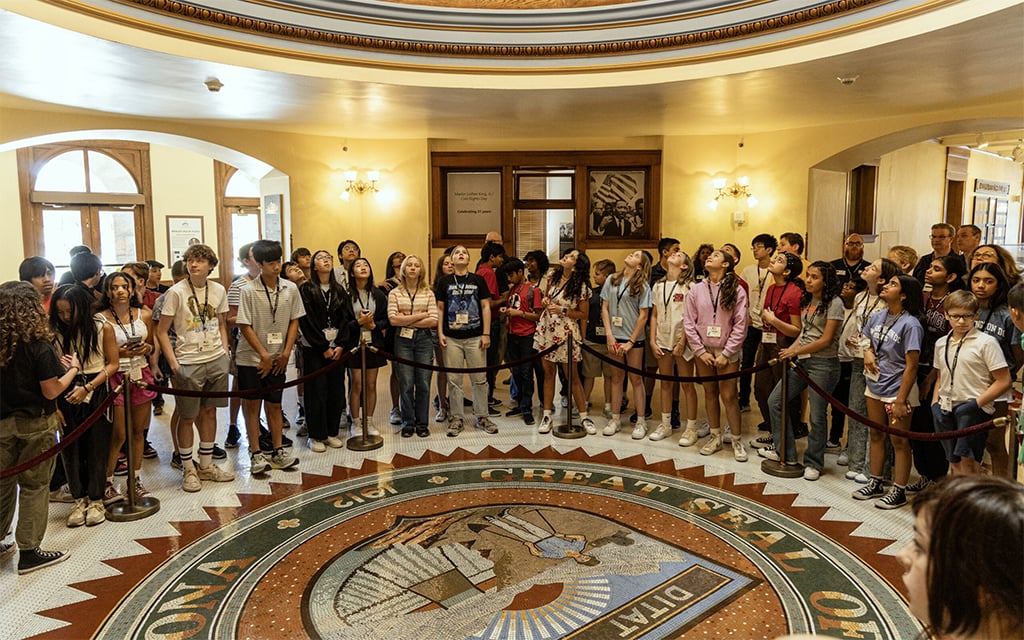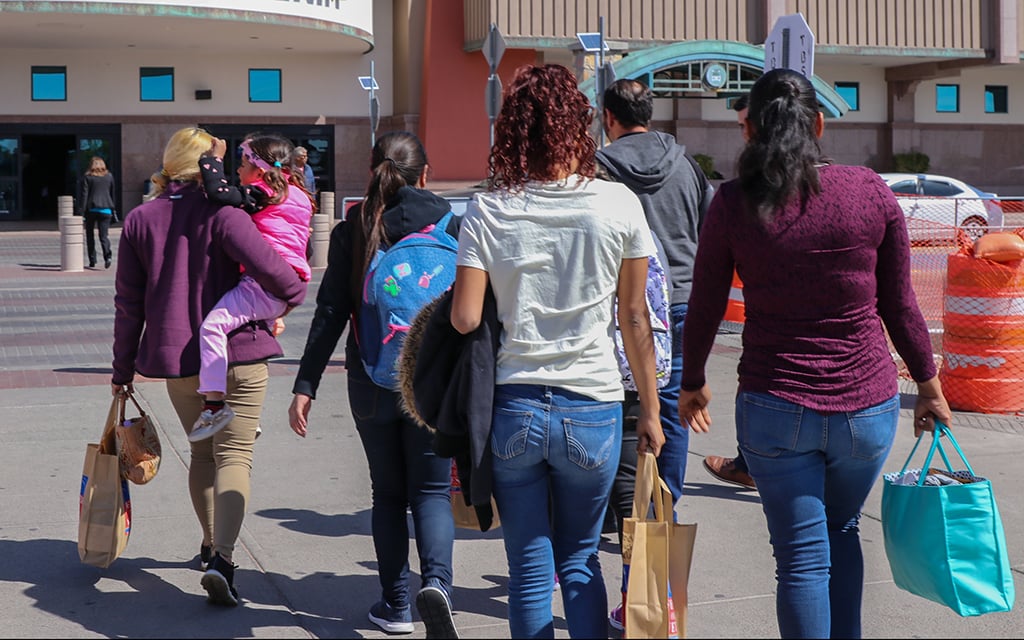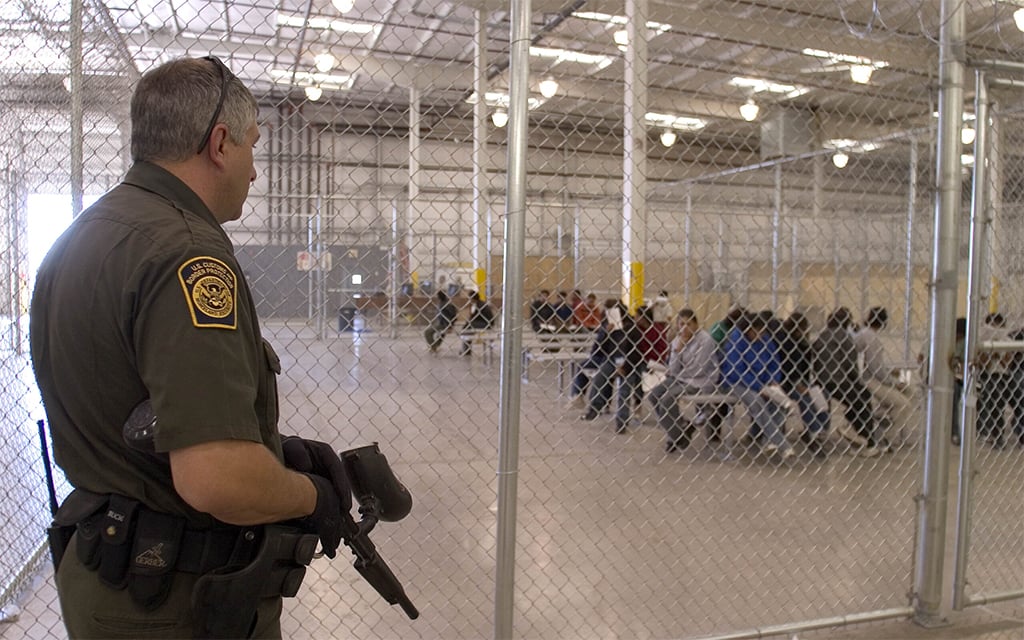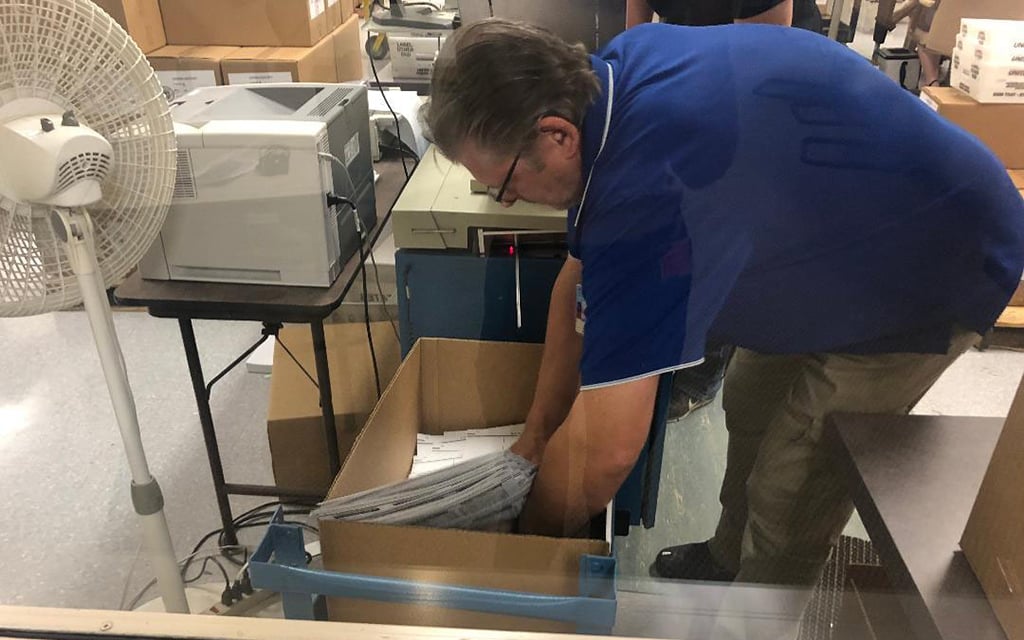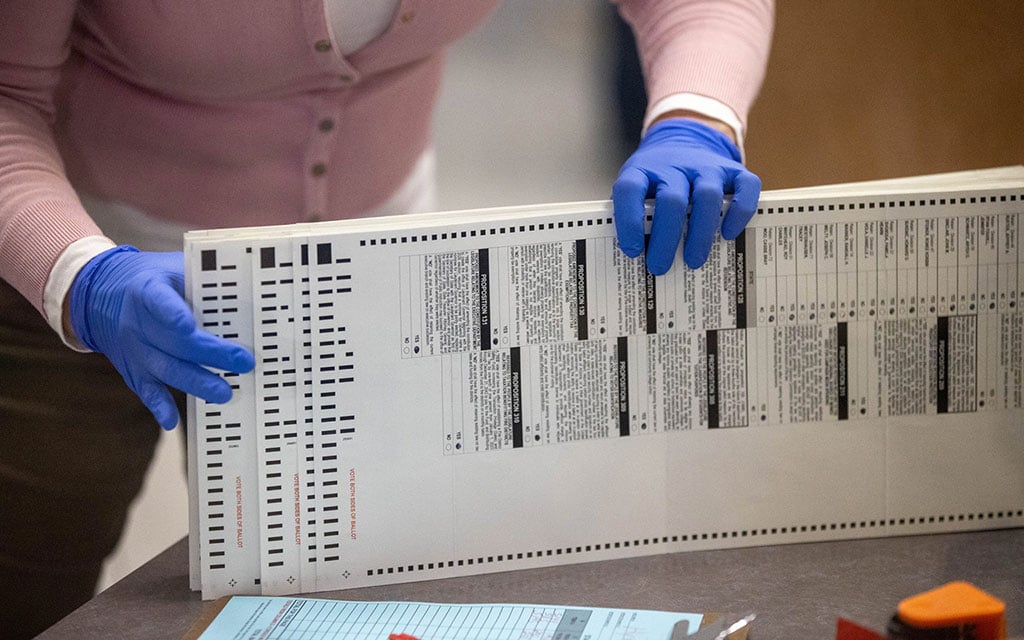WASHINGTON – Republicans secured control of the U.S. Senate with wins in Ohio, West Virginia and Montana. In Arizona, Democratic Rep. Ruben Gallego held a slim lead over former news anchor Kari Lake, an ally of Donald Trump who couldn’t match the former president’s support in the state.
By mid-morning on Wednesday the race had not been called yet and Lake had not conceded. Gallego voiced optimism late Tuesday.
“When all those ballots are counted, and every Arizonan’s vote is counted, a poor Latino boy who grew up sleeping on the floor will be headed to the floor of the United State Senate,” he told supporters.
Gallego would be Arizona’s first Latino senator, and only the 12th ever.
Democrats have been clinging to a 51-49 majority and faced uphill prospects on Tuesday, playing defense in numerous states that shifted rightward in the past six years. Their first setback was apparent shortly after polls closed in West Virginia, where Republicans nabbed a seat long held by Sen. Joe Manchin, a Democrat-turned-independent.
Republicans will have at least 52 seats when the new Congress opens in January.
Arizona, though, has become more purple. In March, Sen. Kyrsten Sinema announced she would not seek a second term. Elected as a Democrat in 2018, she renounced the party in late 2022, joining three other independents who caucus with Democrats to give them a majority.
Gallego, in his fifth House term, is a former Marine who served in combat in Iraq. He positioned himself as a moderate, targeting independents and centrist Republicans in something of a pivot from his progressive roots.
Lake is a former Phoenix news anchor who lost a bid for governor by a tight margin in 2022. She has refused to concede despite repeatedly losing court challenges.
Lake has also been an outspoken promoter of Trump’s false claims about fraud in the 2020 election.
The last time a Republican won a Senate election in Arizona was 2016, when voters reelected John McCain. He died in August 2018.
As one of seven presidential battlegrounds, Arizona has been a frequent stop for Trump and Vice President Kamala Harris. The Senate hopefuls appeared often by their sides at rallies.
Both also scored prime-time speaking slots at the parties’ national conventions.
A third of Senate seats are on the ballot every two years. Democrats were on defense in most of those races and, with few pick-up opportunities, couldn’t afford to lose ground in Arizona.
Nonpartisan analysts identified just four toss-up Senate races nationwide, plus three others where one party held a slight edge. Arizona was one of those three, leaning toward Democrats.
Over $150 million poured into the race – costly by Arizona standards but a fraction of the tally in Ohio, where this year’s Senate race attracted more than $400 million as the GOP sought to unseat a liberal incumbent.
Roughly $234 million was spent in Arizona’s 2022 contest, when Democratic Sen. Mark Kelly won a full term.
Republicans badly wanted to flip Sinema’s seat this year.
But analysts and moderate Republicans have seen Lake as a flawed candidate, given her election denial and dismissiveness toward McCain Republicans and others outside the MAGA orbit.
She alienated some Arizona Republicans when she engineered the ouster of a popular state party leader who had urged her not to jump into the Senate race. Her support among Republicans lagged Trump’s throughout the campaign.
By the end, the national party effectively gave up on her.
After pumping millions into the race earlier in the year, the National Republican Senatorial Committee cut off spending in Arizona in the final month, according to a Washington Post analysis of campaign ads and reports.
Gallego maintained a modest but steady lead in polls throughout the year, though the gap narrowed in recent weeks.
Lake rejected the polls, telling Politico in the final weekend that she was actually ahead, based on internal polling combined with artificial intelligence that “reads all of what’s happening on social media and across the internet.”
Regardless, the Democrat had a rocky October.
He and his ex-wife, Phoenix Mayor Kate Gallego, were unsuccessful in keeping a judge from unsealing the records of their 2017 divorce.
Gallego got mixed reviews for a sputtering performance in the only televised debate. He struggled to break through Lake’s interruptions and was markedly less polished and forceful.
Lake accused Gallego of trying “to reinvent himself” by pretending he’d never been part of the Progressive Caucus. She hammered him as soft on border security, reminding voters that in 2017 he had called Trump’s border wall “stupid.”
“We need somebody who understands the threat on the border, and I do, and President Trump does,” she said.
Gallego scored points, too, though.
“She said she was ‘thrilled’ when Roe was overturned,” Gallego said, claiming Lake supported criminalizing abortion.
“Can you imagine Sheriff Joe Arpaio enforcing abortion laws? This is who Kari Lake is,” he said, invoking the former Maricopa County sheriff famous for forcing inmates to wear pink underwear and work in chain gangs.
And Lake stumbled when he pressed her about the 2022 race. She has never disavowed claims that she is the rightful governor, not Gov. Katie Hobbs, the Democrat who defeated her.
“Will you finally tell the people of Arizona: Did you win or lose that election?” Gallego said near the end of the debate. Lake ignored the question and changed the subject.
“Can I talk about water really quickly?” she said.
Democrats pounced, turning the exchange into attack videos.
Throughout the campaign, Harris and downballot Democrats warned that Republicans would try to impose a federal abortion ban if they controlled both Congress and the White House.
Gallego leveled that assertion at Lake, too. “Mama Bear,”as she refers to herself, rejected the assertion and promised to oppose such a measure in the Senate, insisting she wants to leave abortion policy to the states.
But shifts on abortion left Lake open to attack.
In 2022, she called abortion the “ultimate sin.” In April, after the Arizona Supreme Court ruled that a near-total abortion ban enacted in 1864 was once again the law of the land, she lamented that Hobbs and the state’s Democratic attorney general refused to enforce it.
The week before Election Day, Lake told CNN she voted against Proposition 139, a ballot measure meant to codify abortion access through fetal viability under the state constitution. That’s about 24 weeks, well past the 15-week mark when the state currently bans abortion.
While she downplayed her anti-abortion advocacy and election denial, Lake fully embraced Trump’s hardline on border security. The former president dubbed her “Border Kari” at a Tucson rally.
She echoed his calls for ongoing wall construction and mass deportations and his finger-pointing at illegal immigrants and Democrats for crime, drugs and high housing costs.
Gallego tried to blunt that message by distancing himself from President Joe Biden, criticizing him as ineffective on border security.
Having opposed Trump’s efforts to construct a border wall when he was president, Gallego the Senate candidate voiced support to continue its construction.
He also called for increased manpower and surveillance technology – measures included in a bipartisan deal that Trump persuaded Senate allies to quash earlier this year.


